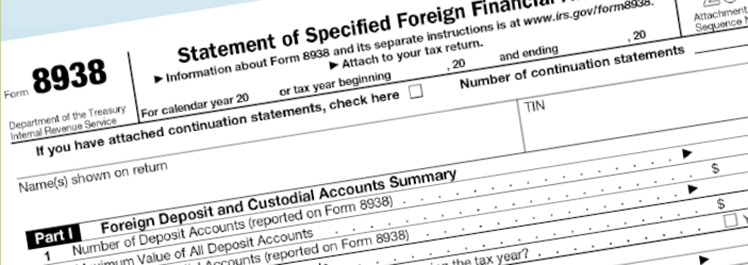Articles
FBAR FAQs, Part II: FinCEN, IRS Answer Your Questions
- By Tom Hunt, CTP, AFP Director of Treasury Services
- Published: 4/30/2018
 (Ed. Note: Updated 4/30/18).
(Ed. Note: Updated 4/30/18).
The following reflects discussions on Foreign Bank Account Reporting (FBAR) that members of the AFP Treasury Advisory Group had with representatives of the Financial Crimes Enforcement Network (FinCEN) and the IRS via a June 11, 2015 conference call and later in-person meeting on September 15, 2015.
FBAR scope of individuals
Question: Does an entity’s employee or agent designated by the entity with the entity’s bank as a “Super User” for accounts need to file an FBAR? Under banking contracts and/or through online banking portals, the Super User has the ability to enable specific persons (either on his or her own or with the approval of others) to enter instructions for funds transfers from the entity’s account(s) at a bank.
Answer: Such “Super Users” are filling administrative roles and are exempt from filing an FBAR unless the person also has an ownership interest in the account.
Question: Do employees or agents who work on tax matters that send foreign tax payments as debit transactions to foreign bank accounts need to file?
Answer: The signer of the account has to give authority to the tax personnel; the signer of the account would file an FBAR, not the tax personnel.
Average balances
Question: We have trouble getting the highest average balance in our bank accounts from our bank and we don’t have internal reporting that keeps track of this since the information changes every minute. What is considered prudent practice in this regard—using the bank’s best value in terms of the highest amount per year? How do you measure the highest bank balance for accounts that ZBA? Would corporate accounting ledger information suffice?
Answer: The IRS FBAR Reference Guide regulation clarifies that the amount reported should be “a reasonable approximation” of the highest balance during the year. The Guide goes on to provide an example that periodic account statements can be relied upon provided that they reasonably reflect maximum account value during the year. While the Guide does not go into further detail, it would appear, therefore, that periodic account statements would not be appropriate for a ZBA account but may be for other type of accounts.
Exemption questions: Foreign companies with subsidiaries in the U.S.
Question: Is an officer or an employee of an entity whose stock is listed on a public exchange, or is ADR listed and such person has no financial interest in the account, exempt from filing?
Answer: Yes, the person would be exempt from filing.
Question: Is an officer or employee of a U.S. subsidiary of a U.S. company that is listed on a public exchange and has no financial interest in the account exempt from filing?
Answer: Yes, as long as such U.S. subsidiary is included in the consolidated FBAR report of the U.S. publicly-listed company.
Question: Is an officer or employee of a U.S. subsidiary of a non-U.S. company and has no financial interest in the account exempt from filing?
Answer: No, such a person does not meet the technical terms of the subsidiary exemption. This would be the case regardless of the listing status of the non-U.S. parent company. While there may be a change in this in the future, it is unclear whether or when the subsidiary exemption would be amended to cover this type of situation. A proposal on this matter may be released in the next six to eight months.
Timeframe for filing past FBARs
Question: If the company recognizes that certain employees were never notified that they were subject to filing, how many years back do those officers or employees need to go back to file?
Answer: FinCEN requires records for five years, but the IRS Statute of Limitations is six years. It’s up to the company to best determine the retention period, but six years would be most prudent.
HR 3236 legislation update
Question: Is the 2015 FBAR due April 15, 2016 with an October 2016 extension or June 30, 2016 with no extension?
Answer: The 2015 FBAR is due NLT June 30, 2016. There is no extension. The new due date will be effective with FBARs for 2016. The normal due date will be April 15, 2017 with extensions to October 15, 2017. A Notice of Proposed Rulemaking (NPR) will be forthcoming from FinCEN with additional inquiry into signature authority and to seek clarity around foreign subsidiaries. Timing is expected in the next six to eight months.
Sign up for our monthly Inside Treasury Newsletter to stay up-to-date on the latest industry news and insights.
Copyright © 2024 Association for Financial Professionals, Inc.
All rights reserved.

